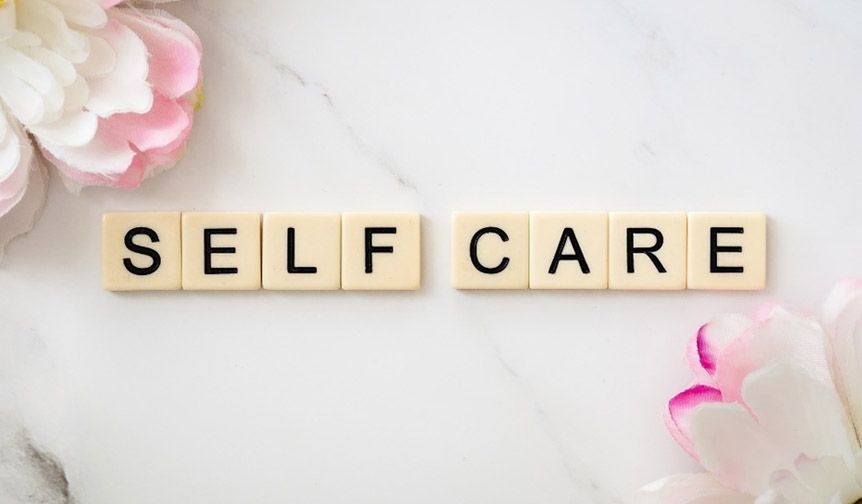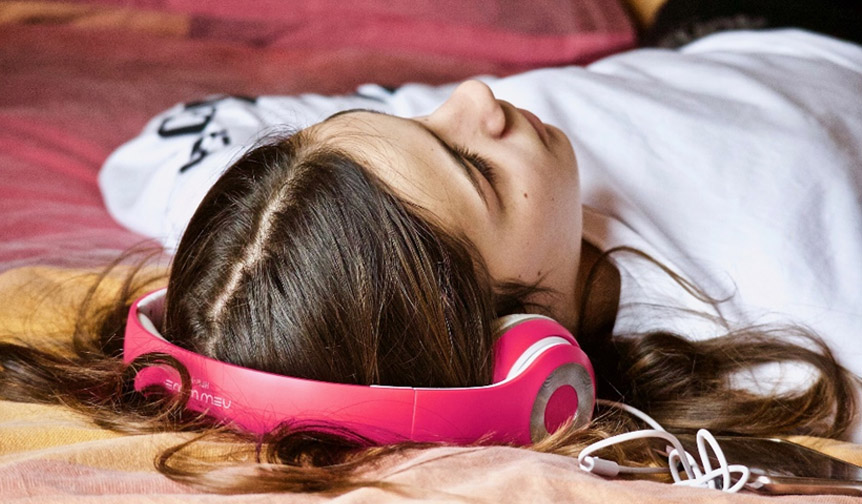8 well needed self-care ideas for students


| Article writen by: Abby | 10 February 2023 |
The city is a hub of student housing and undergraduate accommodation, and it is no wonder why so many students choose to study at universities like the University of Leicester and De Montfort University. As a student, it can be difficult to maintain a healthy and balanced lifestyle, especially when living in student accommodation. However, with a few tips and tricks, you can easily incorporate self-care and mindfulness into your daily routine, helping you to stay happy and healthy during your time at university.
-
Make Your Student Room Your Haven
Your student room should be a place of comfort and relaxation. To make sure it feels like your own, personalize it with pictures, posters, and other items that make you feel happy and relaxed. This will help you to feel at ease when you are studying or simply taking a break from the hustle and bustle of city life. Additionally, make sure that your bed is comfortable and that your room is well-lit. Good lighting will make a big difference to your mood and will also help you to see clearly when you are reading or working on your laptop. If you have a desk, make sure it is clutter-free and that you have everything you need within reach, such as stationery and a calculator. It's also a good idea to have a comfortable chair, so you can sit comfortably for long periods of time.
If you are short on space, consider investing in multi-functional furniture that can be used for multiple purposes, such as a bed with storage underneath or a shelving unit that doubles as a room divider. This will help you to keep your room organized and to maximize the available space.
You can also add some greenery to your room to make it feel more peaceful and calming. Plants can help to purify the air and also have a positive effect on your mood. Succulents and cacti are great options as they are easy to care for and do not require a lot of light.
Finally, don't forget to add some finishing touches, such as curtains or blinds, to keep out the light and provide privacy. You can also add some rugs or a throw to your bed to make it feel more cozy and inviting. In conclusion, making your student room your haven takes some effort, but the end result is well worth it. You will have a space that you can retreat to after a long day of studying or exploring the city, and that feels like your own personal oasis.

-
Get Active
Living in student accommodation doesn’t have to mean you have to give up your daily exercise routine. There are plenty of opportunities to stay active in the city, whether it be joining a local sports club or going for a run in one of Leicester's many parks. By incorporating physical activity into your routine, you will not only improve your physical health but also your mental wellbeing. Many universities offer free or low-cost gym facilities for students, which can be a great way to stay active and meet new people at the same time. If you prefer outdoor activities, consider joining a local running or cycling club, or simply go for a walk or jog in the local park. The fresh air and scenic views can help to clear your mind and boost your mood.
For those who prefer group activities, consider joining a sports team or a dance class. Not only will you be able to meet new people and socialize, but you will also be able to work on your coordination and teamwork skills. If you are interested in a particular sport, such as soccer, basketball, or volleyball, you can join a local league and compete against other teams in the city.
Another option is to find a workout buddy, someone who shares your fitness goals and can motivate you to stay active. You can encourage each other to try new activities, set goals, and hold each other accountable.
It's also important to remember that physical activity doesn't have to be intense to be beneficial. Even simple activities like taking a walk or doing some light stretching can help to boost your energy levels and improve your overall health. In conclusion, incorporating physical activity into your routine is essential for maintaining good health and wellbeing, especially during your time as a student. Whether you prefer individual or group activities, there are plenty of opportunities to stay active and have fun in Leicester. So, get up, get moving, and make the most of your time in the city!

-
Connect with Nature
Leicester is surrounded by beautiful parks and green spaces, making it easy for students to connect with nature. Spending time outside in the fresh air and surrounded by greenery can help you to feel more relaxed and reduce stress levels. Make sure to take advantage of these spaces and include them in your self-care routine. Incorporating nature into your routine can take many forms, from simply taking a walk in the park to participating in outdoor activities such as hiking, camping, or gardening. If you are looking for a peaceful and serene environment, consider visiting one of Leicester's many nature reserves or botanical gardens. These spaces are perfect for taking a break from the hustle and bustle of city life and reconnecting with the natural world.
If you prefer more structured activities, consider joining a local hiking or camping group. These groups organize trips and excursions to nearby parks and nature reserves, giving you the opportunity to explore new places and meet new people who share your love for the outdoors. Another way to connect with nature is through gardening. If you have a balcony or a small outdoor space, consider growing some herbs, vegetables, or flowers. Gardening can be a calming and therapeutic activity, and you will also have the satisfaction of growing your own food and flowers.
If you are not able to get outside, consider bringing nature indoors by incorporating plants and flowers into your room. Studies have shown that indoor plants can have a positive effect on mood and cognitive function, and they can also help to purify the air in your room. In conclusion, connecting with nature is an important part of self-care, and there are many ways to incorporate it into your daily routine, whether you prefer outdoor activities or simply bringing nature indoors. So, take a break from city life, get outside, and enjoy all that Leicester's parks and green spaces have to offer.

-
Practice Mindfulness
Mindfulness is a great way to help you stay calm and focused. Incorporating mindfulness into your daily routine can be as simple as taking five minutes to meditate or simply being present in the moment. Whether you choose to practice mindfulness through meditation, yoga, or simply taking a walk, it can help to reduce stress levels and improve your overall mental wellbeing. If you are new to mindfulness, there are many resources available to help you get started, such as guided meditation apps, online courses, and local workshops. Practicing mindfulness regularly can help to increase your awareness of the present moment, reduce negative thoughts and emotions, and improve your focus and concentration.
One of the simplest ways to practice mindfulness is through breathing exercises. Simply taking a few deep breaths, focusing on your breath, and letting go of any distracting thoughts can help to calm your mind and reduce stress levels. Another way to incorporate mindfulness into your daily routine is through yoga. This ancient practice combines physical postures with breathing and meditation, helping to calm the mind and improve physical and mental health. There are many yoga studios and classes available in Leicester, making it easy to find a class that fits your schedule and needs.
For those who prefer to practice mindfulness in nature, consider taking a walk in one of Leicester's many parks or green spaces. Paying attention to your surroundings and being present in the moment can help to reduce stress and improve your overall sense of well-being. In conclusion, mindfulness is a simple and effective way to improve your mental and physical health. Whether you choose to practice through meditation, yoga, or simply being present in the moment, incorporating mindfulness into your daily routine can help to reduce stress, improve focus and concentration, and increase your overall sense of well-being.

-
Take Time for You
Living in student accommodation can be hectic, with deadlines, assignments, and a busy social life. It is important to take time for yourself, to recharge and relax. Whether it be reading a book, taking a bath, or simply having a lie-in, make sure to take time out for yourself every day. Taking time for yourself doesn't have to involve any major changes to your routine. Simply setting aside a few moments each day to do something you enjoy can make a big difference in your overall well-being. If you're feeling stressed or overwhelmed, consider setting aside some quiet time each day for meditation or deep breathing exercises. These simple practices can help you feel more relaxed and centred, even in the midst of a busy schedule.
It's also important to make sure you're getting enough rest. Aim for 7-9 hours of sleep each night, and try to establish a consistent sleep schedule to help regulate your sleep patterns. If you're having trouble sleeping, consider incorporating relaxation techniques, such as reading or listening to music, into your bedtime routine. In addition to quiet time and sleep, consider making time for physical activity, such as yoga or exercise. Even a short workout can help to reduce stress levels and improve overall physical and mental health. If you're not sure where to start, consider joining a local sports club or fitness group. This can be a great way to meet new people and stay active, even in the midst of a busy schedule.
Finally, make sure to prioritize self-care activities that bring you joy and fulfilment. Whether it's cooking, gardening, or simply spending time with friends, taking time for yourself can help to improve your overall sense of well-being and reduce stress levels. In conclusion, taking time for yourself is an important part of maintaining good mental and physical health. Whether you're looking for ways to reduce stress, improve your well-being, or simply take a break from your busy schedule, make sure to prioritize self-care and take time for yourself every day.

-
Get Enough Sleep
Sleep is essential for good health, and as a student, it is important to make sure you are getting enough of it. A lack of sleep can negatively impact your physical and mental wellbeing, so make sure to get at least 7-8 hours of sleep every night. Establishing a regular sleep schedule can help you to get the rest you need to be your best. Try to go to bed and wake up at the same time each day, even on the weekends. Creating a bedtime routine can also help signal to your body that it's time to wind down and prepare for sleep. Consider reading a book, listening to calming music, or meditating before bed. It's also important to create a sleep-friendly environment. Keep your room cool, dark, and quiet, and avoid screens (e.g. computers, phones, and televisions) for at least an hour before bed. The blue light emitted by screens can interfere with sleep, so it's best to avoid them as much as possible.
In addition to establishing a regular sleep schedule and creating a sleep-friendly environment, consider making changes to your daily routine that can help improve the quality of your sleep. This might include reducing your caffeine intake, avoiding heavy meals before bedtime, and limiting alcohol consumption. If you're still having trouble sleeping, consider seeking the advice of a healthcare professional. They can help you identify any underlying issues that might be affecting your sleep and provide you with guidance on how to improve the quality of your sleep.
In conclusion, getting enough sleep is essential for good health. Whether you're a student or not, make sure to prioritize sleep and take steps to ensure you are getting the rest you need to be your best. This might include establishing a regular sleep schedule, creating a sleep-friendly environment, and making changes to your daily routine to improve the quality of your sleep.
-
Eat a Healthy Diet
Eating a healthy diet can help to improve your physical and mental health. Make sure to include plenty of fruits, vegetables, and whole grains in your diet, and try to limit processed foods and sugary drinks. This will help you to have the energy and focus you need to get through your day. Additionally, consider planning your meals and snacks in advance to help ensure that you are eating nutritious foods throughout the day. Having healthy options on hand, such as fruit, nuts, or a homemade salad, can help you avoid reaching for unhealthy snacks when you are on the go.
Incorporating more plant-based foods into your diet can also help to improve your overall health. Studies have shown that a plant-based diet can help to lower the risk of chronic diseases, such as heart disease, type 2 diabetes, and some types of cancer. Eating a variety of foods can also help to ensure that you are getting all of the nutrients your body needs to function optimally. This might include vitamins, minerals, and antioxidants that can help to support your immune system and protect against disease.
When it comes to eating out, choose restaurants that offer healthy options and try to limit your consumption of high-fat, high-sugar foods. You might also consider cooking meals at home, which can help you to control the ingredients and portion sizes of your meals. In conclusion, eating a healthy diet can help to improve your physical and mental health. Make sure to include plenty of fruits, vegetables, and whole grains in your diet, and limit processed foods and sugary drinks. Consider planning your meals and snacks in advance and incorporating more plant-based foods into your diet to ensure that you are getting all of the nutrients your body needs to function optimally.

-
Seek Support
Living in student accommodation can be challenging, and it is important to seek support when you need it. Whether it be from friends, family, or a support network, having someone to talk to can help you to cope with the challenges of university life. If you are feeling overwhelmed, consider reaching out to a counselling service or support group. Many universities offer free counselling services to students, and these can provide a safe and confidential space for you to talk about your feelings and experiences. Online support communities can also be a valuable resource, providing a platform for you to connect with others who may be facing similar challenges. Whether you are looking for advice, a listening ear, or simply someone to chat with, online support communities can provide a sense of belonging and connection that can help to reduce stress and anxiety.
In addition to seeking support from others, it is also important to prioritize self-care and engage in activities that bring you joy and fulfilment. This might include hobbies, exercise, or spending time with loved ones. By taking care of yourself and seeking support when you need it, you can help to build resilience and cope with the challenges of university life. In conclusion, seeking support is a key aspect of self-care and can be an important way to cope with the challenges of university life. Whether you reach out to friends, family, a support network, or a counselling service, having someone to talk to can help you to feel heard and understood.
Final word
Incorporating self-care and mindfulness into your daily routine is essential for good health and wellbeing, especially when living in student accommodation. By following the tips outlined in this article, you can ensure that your time at university is filled with happy and healthy memories. Good luck, and remember to take care of yourself! Self-care and mindfulness practices are becoming increasingly popular as people become more aware of the importance of taking care of their mental and physical health. Students, in particular, can benefit greatly from incorporating self-care into their daily routine, as university life can be stressful and demanding. By taking care of yourself, you can reduce stress levels and improve your overall quality of life.
One of the best ways to practice self-care is to establish a daily routine that includes activities that promote relaxation and mindfulness. This can include exercise, meditation, journaling, and engaging in hobbies that you enjoy. It is also important to get enough sleep and eat a healthy, balanced diet. This will help to boost your energy levels and improve your mental clarity. Another important aspect of self-care is making time for yourself, even if it is just a few minutes each day. This can involve reading a book, taking a bath, or simply taking a walk in nature. The key is to make time for activities that bring you joy and help you to relax and recharge.
Living in student accommodation can be challenging, but by incorporating self-care and mindfulness practices into your daily routine, you can ensure that your time at university is filled with happy and healthy memories. Whether you choose to meditate, exercise, or simply take some time for yourself each day, the most important thing is to make self-care a priority. In conclusion, taking care of yourself should be a top priority, especially for students living in student accommodation. So go ahead and make self-care a part of your daily routine and enjoy the many benefits it has to offer!
Frequently Asked Questions
Self-care is a broad concept that encompasses many aspects of one's life, but generally, it refers to the practices and activities that individuals engage in to maintain their physical, mental, and emotional well-being. Here are 8 common areas of self-care:
- Physical self-care: This includes practices that promote physical health, such as exercise, proper nutrition, and adequate sleep.
- Emotional self-care: This involves managing and regulating emotions, such as practicing mindfulness and stress management techniques, seeking support from loved ones, and engaging in activities that bring joy and happiness.
- Mental self-care: This refers to activities that promote mental wellness, such as reading, learning new skills, and engaging in creative pursuits.
- Spiritual self-care: This encompasses practices that help individuals connect with their sense of purpose, such as meditation, prayer, and spending time in nature.
- Social self-care: This involves nurturing relationships and building a supportive network, such as spending time with friends and family, volunteering, and participating in social activities.
- Occupational self-care: This involves taking steps to ensure job satisfaction and personal fulfillment in one's career, such as setting boundaries, finding work-life balance, and seeking out new challenges and opportunities.
- Financial self-care: This involves managing finances in a responsible and sustainable way, such as creating a budget, saving money, and investing in one's future.
- Environmental self-care: This involves taking care of one's surroundings and being mindful of the impact that one's actions have on the environment, such as reducing waste, conserving energy, and protecting natural resources.
What are some good self-care ideas?
- Take a relaxing bath or shower
- Practice mindfulness meditation or deep breathing exercises
- Go for a walk or do some other form of physical exercise
- Engage in a hobby or creative pursuit
- Read a book or watch a movie
- Spend time in nature
- Get a massage or treat yourself to a spa day
- Practice good sleep hygiene by creating a bedtime routine and sticking to a consistent sleep schedule
- Write in a journal or express your emotions through art
- Connect with loved ones through phone calls, video chats, or in-person visits
- Volunteer or help others in your community
- Practice yoga or another form of mind-body exercise
- Take a relaxing nap
- Enjoy a healthy and balanced meal
- Take a break from technology and disconnect for a while
- Listen to music or play an instrument
- Take a class or learn a new skill
- Seek support from a therapist or counselor
- Get organized and declutter your living space
- Plan a fun and enjoyable vacation or weekend getaway.
- Identify your self-care needs: Think about what you need to feel good physically, mentally, and emotionally. This might include things like exercise, relaxation, socializing, sleep, and healthy eating.
- Set achievable goals: Decide what you want to accomplish with your self-care routine and set achievable goals for yourself. This could be something like taking a walk every day, meditating for 10 minutes a day, or eating a healthy breakfast every morning.
- Plan your routine: Determine the best time for each self-care activity, taking into account your schedule, energy levels, and other responsibilities. For example, you might want to exercise in the morning, meditate in the evening, and relax before bed.
- Make it a habit: Incorporate self-care activities into your daily routine and stick to them as consistently as possible. This will help you establish a healthy habit that will serve you well in the long term.
- Be flexible: Remember that your self-care routine is meant to serve you, not control you. If you need to skip a self-care activity or switch things up because of a busy day, that's okay.
- Evaluate and adjust: Regularly evaluate your self-care routine to see what's working and what's not. Make adjustments as needed to ensure that you are getting the most out of your self-care time.
Remember, self-care is an ongoing process and what works for one person may not work for another. Experiment with different activities and routines until you find what works best for you.
As a student, it is easy to get caught up in the daily stress and demands of uni, assignments, and exams. However, taking time for self-care is crucial for maintaining both physical and mental well-being. Self-care helps reduce stress and increase overall satisfaction with life, which can, in turn, improve academic performance. Regular self-care practices, such as exercise, meditation, and getting enough sleep, can also enhance cognitive function and creativity, making it easier to tackle complex problems and think outside of the box.
Additionally, self-care helps prevent burnout and maintain energy levels needed to keep up with the fast-paced demands of academic life. Without taking time for self-care, students are at risk of experiencing feelings of overwhelm and fatigue, which can negatively impact their mental health, motivation, and academic success.
Self-care is an essential aspect of being a student, and should be prioritized as such. By taking care of oneself, students can maintain their physical and mental health, reduce stress, and increase academic performance, ultimately leading to a more fulfilling and successful academic experience.
 中文
中文



